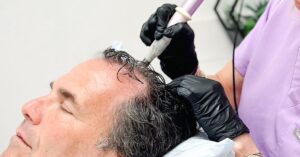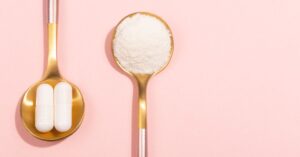Nitric Oxide Benefits for Men
Nitric oxide is more than just a term from your high school science class; it’s a crucial molecule that can significantly impact male health. As a naturally occurring substance in the body, nitric oxide plays a vital role in maintaining healthy blood flow and supporting various bodily functions.
For men, nitric oxide is particularly important for erectile function and overall vascular health. Many men experience challenges in these areas as they age, but the good news is that boosting your nitric oxide levels can help. Understanding how nitric oxide works and finding natural ways to enhance its production can lead to better overall health and improved quality of life.
In this article, we’ll explore the benefits of nitric oxide for male health, delve into how it supports erectile function and testosterone production, and provide practical tips on how to naturally increase your nitric oxide levels.
What is Nitric Oxide?
Nitric oxide is a gas that is naturally produced by the body. It functions as a signaling molecule, helping to regulate a variety of biological processes. One of its primary roles is vasodilation, which relaxes blood vessels and improves blood flow and oxygen delivery to tissues throughout the body. This includes blood flow in the arteries of the heart and to the lings, but also to your brain and your penis, making it an important component of sexual health.
Nitric Oxide Benefits for Sexual Health
Nitric oxide benefits sexual health in men (and women, actually) because of the increase in blood flow. When testosterone levels are low, it can interfere with the way nitric oxide works, making it harder for blood to flow properly through the body, including to the penis. Nitric oxide plays a vital role in the physiological process of achieving and maintaining an erection (1).
A common misconception is that nitric oxide can boost testosterone levels. However, it’s actually the other way around: low testosterone levels can negatively affect nitric oxide pathways. Low testosterone levels can cause problems with the inner lining of your blood vessels, known as the endothelium. Research shows that testosterone helps regulate the nitric oxide (NO)/cyclic guanosine monophosphate (cGMP) pathway, which is crucial for keeping your blood vessels healthy. This pathway also influences special cells called endothelial progenitor cells (EPCs), which help repair the endothelium and maintain good blood flow.
So, nitric oxide benefits sexual health by increasing blood flow, but you still might need to address the underlying issue of low testosterone with hormone therapy. By understanding how nitric oxide works and how it is affected by testosterone, you can better manage your health and address issues related to blood flow and sexual function.
Nitric Oxide Benefits for Heart & Lung Health
Maintaining sexual health goes beyond just blood flow to the penis. The health of your heart and lungs is just as important. The heart, often seen as the organ of love, plays a crucial role in overall vitality. Nitric oxide (NO) is essential for heart health because it dilates blood vessels, improving arterial blood flow and reducing blood pressure. This means your heart doesn’t have to work as hard to circulate blood, significantly lowering the risk of heart disease, and simultaneously increasing your stamina both in and out of the bedroom. 😉
And, even though love can take your breath away, improved blood flow also benefits lung health by enhancing oxygen delivery and reducing respiratory strain. This is vital for overall stamina and endurance, not just in daily activities but also in maintaining a healthy sex life. By supporting nitric oxide levels, you can boost cardiovascular function, enhance lung capacity, increase oxygen utilization, and improve overall stamina, ensuring you stay active and healthy.
How to Boost Nitric Oxide Naturally
The nitric oxide benefits for our heart, lungs, and even sexual health are well-documented. But how can you naturally boost your NO levels? The following tips can help you with your day to day increase of NO. Don’t worry, I’ll also provide some supplement recommendations below!
Dietary Nitrates: Foods rich in nitrates, such as leafy greens (spinach, arugula) and beets, can help increase nitric oxide levels. Nitrates are converted into nitric oxide in the body, promoting better blood flow and vascular health.
Exercise: Regular physical activity, particularly aerobic exercises like running, swimming, and cycling, can enhance nitric oxide production. Exercise improves endothelial function, which is critical for nitric oxide synthesis.
Antioxidants: Vitamins C and E, along with other antioxidants, help protect nitric oxide from oxidative damage. A diet rich in fruits, vegetables, and nuts can provide these essential nutrients.
Sunlight: Exposure to sunlight can stimulate the production of nitric oxide in the skin. Spending time outdoors and getting moderate sun exposure can be beneficial for nitric oxide levels.
Infrared Light: Infrared light therapy is a powerful way to boost nitric oxide levels. When NIR light penetrates the skin, it stimulates the release of NO from cells. This process occurs because NIR light activates certain enzymes, such as cytochrome c oxidase, in the mitochondria. These enzymes then facilitate the production and release of NO. Our Red Light Therapy Bed and HOCATT ozone sauna both include powerful near/far infrared light (2).
- Ozone Therapies Ozone therapies, such as EBO2 (Extracorporeal Blood Oxygenation and Ozonation), MAH (Major Autohemotherapy), and the HOCATT (Hyperthermic Ozone and Carbonic Acid Transdermal Therapy) sauna, have been shown to increase nitric oxide (NO) levels in the body. These therapies work by infusing ozone, a powerful oxygen-rich molecule, into the bloodstream. The introduction of ozone stimulates the production of NO, which leads to vasodilation, improved blood flow, and enhanced oxygen delivery to tissues. By boosting NO levels, ozone therapies support cardiovascular health, enhance lung function, and promote overall vitality. At Tringali Vibrant Health, our cutting-edge ozone therapies can help you harness the benefits of increased nitric oxide for a healthier, more vibrant life.
My Favorite Nitric Oxide Boosting Supplement:

Nitric Oxide Support
One of our Favorite Nitric Oxide Boosting supplements is Berkeley Life Professional’s Nitric Oxide Support. It provides a plant-based equivalency of dietary nitrate that would be found in beet juice and leafy greens to provide nitric oxide support for a healthy circulatory system.*
My Final Word on Nitric Oxide Benefits
Men, when it comes to your health, just say “NO”—nitric oxide, that is. This crucial molecule plays a key role in maintaining blood flow, supporting erectile function, and ensuring heart and lung health. Low testosterone levels can negatively affect nitric oxide pathways, leading to various health issues. By focusing on boosting nitric oxide through diet, exercise, and supplements, you can improve overall cardiovascular health and enhance your quality of life. Prioritizing nitric oxide production is a simple yet effective way to support your well-being.

Erich Acebedo, MD
Dr. Acebedo is a functional medicine expert who is board-certified in Internal Medicine and has advanced expertise in Age Management medicine. He has certifications from the Institute of Functional Medicine and a Peptide Certification from the American Academy of Anti-Aging Medicine. He is a Rigvir Certified Practitioner, and Swiss Biologic Medicine under Dr. Thomas Rau in Switzerland, who focuses on innovative functional cancer treatments.









